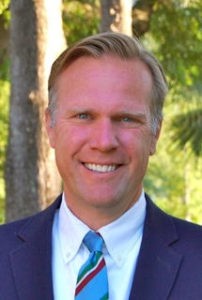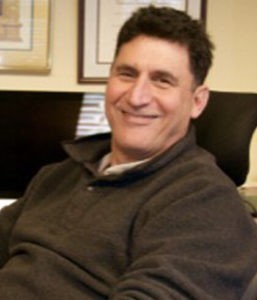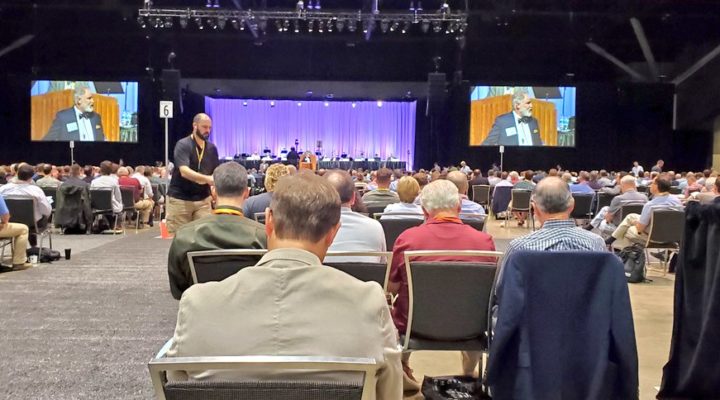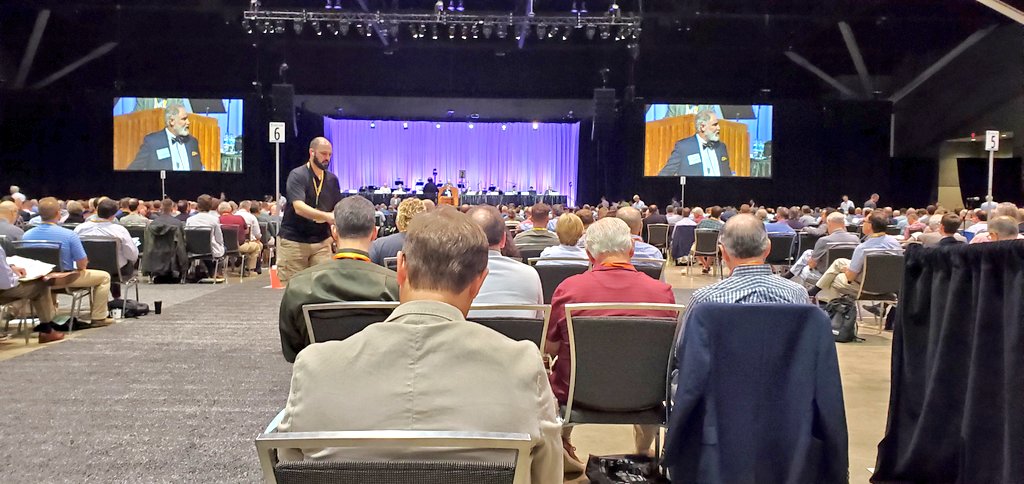In a scene reminiscent of the Southern Baptist Convention annual meeting this summer, pastors and leaders of the Presbyterian Church in America entered their annual meeting last week with letters and endorsements and counter-letters circulating to address what some believe to be a slippery slope to liberalism in one of the nation’s most conservative Christian bodies.
One visible sign of the denomination’s commitment to conservative theological and social values is a proposed new statement disallowing the ordination of gay Christians to any office within the church.
However, addressing the ordination of gay clergy is a “red herring,” according to an ultra-conservative group within the PCA that says they’ve heard no one in the PCA seriously propose such ordinations.
Concerns of Gospel Reformation Network
Instead, talking about gay clergy takes attention away from the Gospel Reformation Network’s “genuine concerns” about human sexuality, social justice, Critical Race Theory, and “confessional integrity in our churches and presbyteries.”

Jon Payne
That is the response written by Jon Payne, senior minister of Christ Church Presbyterian in Charleston, S.C., and executive coordinator of the Gospel Reformation Network, a group similar in nature to the Conservative Baptist Network within the SBC. The Gospel Reformation Network describes its purpose as “to cultivate healthy Reformed churches in the Presbyterian Church in America.”
The PCA’s online magazine, By Faith, published a summary of the divergent viewpoints within the denomination heading into this year’s meeting.
Mike Khandjian, pastor of Chaplegate Presbyterian Church in Marriottsville, Md., is credited as author of an open letter that accumulated more than 650 cosigners and is a call to cooperation instead of division. It addresses issues ranging from human sexuality to scriptural authority to the role of women in the church.

Mike Khandjian
It concludes: “So, let’s join hands and lock arms. Let’s stop this petty feuding. Let’s stop whittling everything down to extremes. Let’s stop and listen to one another — before we take denomination-altering votes — before we “devour one another” (Galatians 5:15), before all of us regret the opportunities we missed, the people we hurt, and the rush-to-judgments we could have avoided.”
A similar call to unity was sounded in a second letter signed by 15 former moderators of the denomination.
“If you have heard some voices sounding an alarm that the PCA is on a steep ‘slippery slope’ that leads to liberalism, we disagree. Any claim that we are becoming a denomination of liberals or have embraced an agenda that is out of accord with historic Presbyterian and Reformed Christianity fails to either understand our denominational history, our shared and variegated Reformed theology, or both. We do not know of a single pastor or ruling elder in the PCA who could be described as theologically liberal.”
Those voices sounding alarms, referred to in both letters, largely are considered to be from the Gospel Reformation Network. Thus, its letter in response, penned by Payne, attempts to acknowledge the appeal to unity while raising theological purity as a higher goal.
“True unity is impossible apart from unity in the truth,” Payne wrote. “Biblical fidelity and confessional integrity serve as the glue that holds the PCA together. Without it, we will eventually come apart.”
“Biblical fidelity and confessional integrity serve as the glue that holds the PCA together. Without it, we will eventually come apart.”
One of 47 ‘overtures’
In PCA governance, delegates to the General Assembly act on proposals that are called “overtures.” These often originate in local or regional presbyteries. This year, 47 such overtures were proposed.
The one that has drawn the most outside attention is Overture 23, concerning ordination and sexual orientation.
An original version was presented, then amended. The amended version reads: “Officers in the Presbyterian Church in America must be above reproach in their walk and Christlike in their character. Those who profess an identity (such as, but not limited to, ‘gay Christian,’ ‘same sex attracted Christian,’ ‘homosexual Christian,’ or like terms) that undermines or contradicts their identity as new creations in Christ, either by denying the sinfulness of fallen desires (such as, but not limited to, same sex attraction), or by denying the reality and hope of progressive sanctification, or by failing to pursue Spirit-empowered victory over their sinful temptations, inclinations, and actions are not qualified for ordained office.”
To become official, Overture 23 must be approved by two-thirds of the denomination’s regional presbyteries and then again by a majority at the 2022 General Assembly.
An opposing view
While the statement is likely to please a majority of the clergy and membership within the PCA, one pastor told Religion New Service it is unnecessary and will harm young people considering vocational ministry.
“We don’t need to amend our constitution to make a non-affirming denomination (hostile) to gay people who want to follow Jesus in celibacy,” said Greg Johnson, lead pastor of Memorial Presbyterian Church in St. Louis.
Johnson has identified himself as a “gay atheist kid who experienced a conversion to Jesus in college and has joyfully walked with him in celibacy ever since.” He told RNS that too many in the PCA continue to be influenced by the now-discredited ex-gay movement and conversion therapy.
“While the ex-gay movement is dead, its cadaver walks about undead among us.”
“While the ex-gay movement is dead, its cadaver walks about undead among us,” he told RNS. “Its presence was palpable.”
Where the PCA fits with other denominations on LGBTQ ordination
The PCA joins a long list of other Christian denominations in America that specifically — or practically — bar the ordination of gay, lesbian, bisexual or transgender persons.
Among the variety of Baptists found in America, all practice a congregational polity that allows for autonomy, meaning a national denominational body cannot in theory apply a policy downline. But practically, such policies are enforced, often through doctrinal statements.
Such is the case with the SBC, the nation’s largest non-Catholic denomination, which has removed churches from affiliation merely for allowing LGBTQ Christians to become members of their congregations.
The American Baptist Churches in the USA last addressed LGBTQ policy statements in 2005 with a declaration on the “teaching of Scripture that God’s design for sexual intimacy places it within the context of marriage between one man and one woman” and that “the practice of homosexuality is incompatible with biblical teaching.”
The PCA joins a long list of other Christian denominations in America that specifically — or practically — bar the ordination of gay, lesbian, bisexual or transgender persons.
The National Baptist Convention USA Inc., the largest of the historically Black Baptist denominations in America, has no formal policy on this issue and, like most Baptist bodies, is guided by local church autonomy.
One Baptist body, the Alliance of Baptists, which was the first of two breakaway groups from the SBC in the late 20th century, explicitly affirms full inclusion for LGBTQ Christians, including clergy ordination.
The other breakaway group from the SBC, the Cooperative Baptist Fellowship, leans heavily on the doctrine of local church autonomy and embraces churches that both ban and bless ordination of LGBTQ clergy. This spring, a CBF congregation in Indiana became the first in the national body to ordain a transgender person to ministry.
U.S. denominations that allow LGBTQ ordination
The state of acceptance of LGBTQ clergy in American Christianity remains a mixed — and often uncertain — issue.
Nowhere is that uncertainty more pronounced right now than in the United Methodist Church, which is in the process of schism over this very issue. A majority of UMC congregations in the United States appear to favor full inclusion in clergy ordination, but a majority of the worldwide UMC — particularly in Africa — does not favor inclusion. That led to the adoption of a 2016 policy that “the practice of homosexuality is incompatible with Christian teaching” and that “self-avowed practicing homosexuals are not to be certified as candidates, ordained as ministers, or appointed to serve in The United Methodist Church.”
Some American churches revolted against this statement, and some regional conferences have ignored the policy statement. The policy statement for the entire denomination, however, does not ban the ordination of gay, lesbian and bisexual persons who take vows of abstinence.
And in a further twist, the UMC has no policy barring transgender clergy from ordination based solely on their gender identity. An attempt to deny ordination to transgender persons failed at the UMC’s global gathering in 2008.
In the United States, the United Church of Christ was the first Christian denomination to ordain gay clergy, beginning in 1972.
In the United States, the United Church of Christ was the first Christian denomination to ordain gay clergy, beginning in 1972.
The Episcopal Church in America in 1976 affirmed the equal dignity of all people, stating that “homosexual persons are children of God who have a full and equal claim with all other persons upon the love, acceptance and pastoral concern and care of the church” and “are entitled to equal protection of the laws with all other citizens.”
In 1994, the Episcopal Church amended its canon law to prohibit discrimination based on sexual orientation, including through ordination. In 2006, the church ordained an openly gay bishop, which prompted a 13-year moratorium on naming gay bishops but did not stop the ordination of LGBTQ priests. The Episcopal Church also approved transgender ordination at its 2012 convention.
The issue remains divisive within the Episcopal Church, however, and some bishops and congregations continue to practice exclusion. A note on the national body’s website explains that “it would be ingenuous to say that the entire church is in the same place on this journey. … Some Episcopal congregations are actively involved in LGBTQ ministry and their arms are open wide; others are more reserved, but their doors are still open to all; some are still wrestling with their beliefs and feelings.”
In 2013, the Evangelical Lutheran Church in America ordained its first gay bishop, and a year later it ordained the first transgender pastor in a local congregation. That followed adoption of a 1991 resolution that stated: “Gay and lesbian people, as individuals created by God, are welcome to participate fully in the life of the congregations of the Evangelical Lutheran Church in America.” Then in 2013, the ELCA Assembly voted to “encourage all ELCA synods, congregations and members to add their voices in support of legislation that prohibits employment discrimination on the basis of actual or perceived sexual orientation or gender identity.”
The Presbyterian Church USA, the largest of the Presbyterian bodies in America, ordained a lesbian pastor in 2012 and in 1996 allowed a clergy member who transitioned from male to female to retain ordination. The PCUSA’s General Assembly in 2010 approved an amendment that allows ordination of LGBTQ ministers at the discretion of individual presbyteries and sessions. That amendment was ratified in 2011.
Within the Disciples of Christ, which operates with a decentralized polity akin to Baptists, congregations were ordaining gay clergy as early as 1991. And in 2013, the denomination’s General Assembly passed a “sense of the assembly” statement encouraging full inclusion but not mandating it.
Other denominations that bar LGBTQ ordinations
The vast majority of other Christian bodies in America — as well as the Roman Catholic Church — explicitly ban the ordination of LGBTQ persons.
That list includes Adventists, Assemblies of God, Churches of Christ, Church of God, Church of the Nazarene, Evangelical Free Church, Greek Orthodox, Lutheran Church-Missouri Synod, and most evangelical and non-denominational congregations.
The PCA remains one of the most conservative mainline denominations in America, often standing in contrast to the larger Presbyterian Church (USA), from which it split in 1973. Its website’s history page describes that split as caused by the PCUSA’s “long-developing theological liberalism which denied the deity of Jesus Christ and the inerrancy and authority of Scripture. Additionally, the PCA held to the traditional position on the role of women in church offices.”
Two of the denomination’s best-known pastors are Tim Keller, founding pastor of Redeemer Presbyterian Church in New York City, and the late D. James Kennedy, founding pastor of Coral Ridge Presbyterian Church in Florida.
Related articles:
Outgoing SBC president affirms conservative values while decrying legalism


